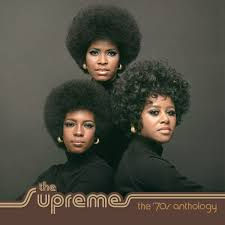Verum Insights...
- Marcus Nikos
- Feb 14, 2025
- 4 min read

“You don’t do something because it’s a sure thing. You don’t do something for the bank. That’s the one that flops. That’s a riskier proposition than doing something completely original. It’s risky to be safe.”
Den Of Thieves | Book Introduction
Den of Thieves is a captivating and thrilling book written by Pulitzer Prize-winning journalist James B. Stewart. Published in 1991, this nonfiction work explores the intricate web of corruption, greed, and power within Wall Street during the 1980s.In Den of Thieves, Stewart delves deep into the notorious scandals of the era, chronicling the rise and fall of some of the most influential figures in the financial world. Through meticulous research and interviews, he brings to light the shocking details of insider trading, market manipulation, and illegal activities that consumed the Wall Street landscape. The book primarily focuses on the interconnected stories of four central characters: Ivan Boesky, Michael Milken, Dennis Levine, and Martin Siegel. These individuals were among the key players in the illegal schemes that sought to exploit loopholes and manipulate the stock market for personal gain. Stewart provides an intimate and detailed look into their lives, dissecting their motivations, actions, and the consequences they faced. One of the most notable aspects of Den of Thieves is its ability to shed light on the complex workings of Wall Street. Stewart takes readers behind the scenes of some of the biggest financial institutions of the time, unraveling the intricate mechanisms that allowed the perpetrators to carry out their fraudulent activities. He examines the role of investment banks, brokerage firms, law enforcement agencies, and regulatory bodies in this high-stakes game of deception. Beyond exposing the individuals involved in the scandals, Den of Thieves also raises important questions about the larger system in which they operated. Stewart highlights the interconnectedness of power, money, and influence, demonstrating how these factors can corrupt even the most seemingly trustworthy individuals. He explores the ethical implications of financial practices and the impact they have on the economy and society as a whole. Stewart's writing style is meticulous and engaging, making even the most complex financial concepts accessible to the general reader. He weaves together multiple narratives and plotlines, building suspense and excitement throughout the book. His ability to balance in-depth analysis with captivating storytelling makes Den of Thieves a truly compelling read. Ultimately, Den of Thieves offers a sobering and cautionary tale about the excesses and dangers of unchecked ambition in one of the most powerful sectors of the global economy. It serves as a reminder that for every success story on Wall Street, there are those who are willing to cross ethical and legal boundaries to achieve their goals. Stewart's investigative prowess and narrative skill combine to create a powerful and thought-provoking exploration of the dark underbelly of finance.
5 Key Lessons From Den Of Thieves
1. The complexity of white-collar crime: Den of Thieves sheds light on the intricate web of illegal activities conducted by insider traders in the 1980s. The book demonstrates how sophisticated these individuals were in manipulating the stock market, using complex financial instruments, and evading detection from regulators.
2. The unethical nature of insider trading: The book portrays insider trading as a morally reprehensible act that undermines the integrity of the financial markets. The author, James B. Stewart, highlights how these traders exploited their privileged access to non-public information for personal gain, at the expense of ordinary investors.
3. The failures of financial regulation: Den of Thieves exposes the loopholes and deficiencies in the regulatory framework that enabled insider trading to flourish during that era. It illuminates the complacency, lack of coordination, and inadequate resources of regulatory agencies, such as the Securities and Exchange Commission (SEC), in effectively combating financial crimes.
4. The power dynamics and collaboration among criminals: The book delves into the interconnected relationships among Wall Street professionals, lawyers, and criminals involved in insider trading. It elucidates the mechanisms through which these individuals colluded, shared information, and protected each other, illustrating how power dynamics and the power of networking played a significant role in their criminal activities.
5. The consequences of illegal actions: Den of Thieves emphasizes the severe consequences faced by the individuals involved in insider trading. The book touches upon the high-profile arrests, trials, and convictions of prominent figures, showcasing the potential downfall and tarnished reputations experienced by those who engage in illegal financial activities. Additionally, the book highlights how these actions erode trust in the financial system and corporate ethics as a whole.
In the cutthroat world of Wall Street, greed is the ultimate motivator.
Money is the root of all evil, but it's also the driving force behind every great heist.
In the shadows of success lie the skeletons of our past mistakes.
Trust is an illusion in a world where everyone is out for themselves.
The line between genius and madness is often blurred in the pursuit of wealth.
Every decision we make has consequences, and sometimes those consequences can be deadly.
Never underestimate the power of a carefully crafted lie.
The greatest weapon anyone can possess is knowledge.
In the world of high finance, it's all about who you know and how far you're willing to go to get what you want.
Sometimes the greatest betrayal comes from those we least expect.
In a world of sharks, it's survival of the fittest.
Success is not measured by what you have, but by who you become in the process.
The financial world is a chessboard, and only those who can think several moves ahead will come out on top.
Behind every great fortune, there is a hidden secret.
Never let your desires blind you to the truth.
Money can corrupt even the most virtuous of individuals.
The illusion of wealth can be just as dangerous as the real thing.
In a world ruled by greed, it's the ones who remain honest that truly stand out.
Opportunity knocks only once, and those who hesitate are left behind.
It's not about the money, but about the power it holds over us.
The pursuit of wealth can be a hollow victory if it comes at the expense of those we love.
In the world of high finance, there are no easy answers.
We are all just players in a larger game, and the stakes couldn't be higher.
In the end, money will always reveal our true nature.
Sometimes, the only way to win is to play dirty.


